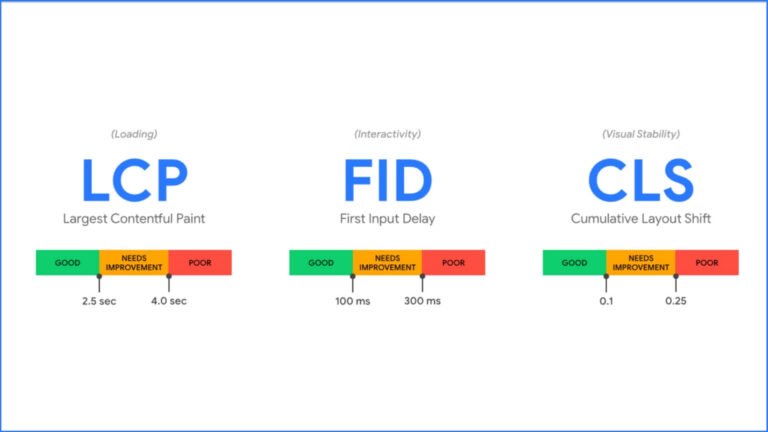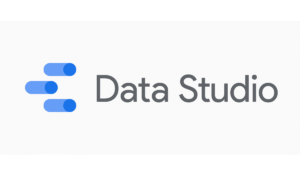Have you ever wondered why your website isn’t ranking—even with great content? Or why visitors leave your pages before they even load? The answer might lie in one powerful concept: Core Web Vitals.
In the world of digital marketing, speed, stability, and smooth interaction are no longer optional—they’re expected. So, what if you could improve your Google rankings and keep users engaged, just by optimizing a few key performance metrics? At Seo Khana, we help brands like yours master the art of performance with a clear focus on what truly matters—Core Web Vitals.
Are you ready to boost your site speed, enhance the user experience, and climb the search results faster than ever before? Let’s dive in.
What Are Core Web Vitals?
Core Web Vitals are a set of user-focused performance metrics introduced by Google to measure real-world experience across websites. They focus on three core aspects: how fast content loads, how quickly users can interact, and how visually stable the page is during loading.
- Largest Contentful Paint (LCP): Evaluates loading speed by measuring when the main content becomes visible.
- First Input Delay (FID): Measures the time it takes for a page to respond to the first user interaction.
- Cumulative Layout Shift (CLS): Assesses how stable the layout is as the page loads, identifying unexpected shifts.
By optimizing these three signals, websites can meet Google’s expectations for excellent user experience. That’s why understanding and improving Core Web Vitals is essential for both SEO success and visitor satisfaction.
What are the three basic web biometrics?
To deliver a smooth and engaging experience, Google introduced a set of performance indicators known as Core Web Vitals. These metrics focus on real-world user experience and are essential for improving both SEO and usability. Let’s explore the three key web biometrics that make up these vital signals:
1. Largest Contentful Paint (LCP) – Loading Performance
What it measures: The time it takes for the largest visible element (like an image or text block) to fully load on the screen.
Ideal score: Under 2.5 seconds.
Common issues: Slow server response, render-blocking resources, and large images.
2. First Input Delay (FID) – Interactivity
What it measures: The time between the user’s first interaction (click, tap, or key press) and when the browser begins processing that event.
Ideal score: Less than 100 milliseconds.
Common issues: Heavy JavaScript execution, long main-thread tasks, third-party scripts.
3. Cumulative Layout Shift (CLS) – Visual Stability
What it measures: The amount of unexpected movement of visible elements during page load.
Ideal score: Less than 0.1.
Common issues: Images without set dimensions, dynamic content like ads or pop-ups, and unoptimized web fonts.
Together, these three metrics form the core of Core Web Vitals, guiding developers and marketers alike in creating websites that are not only fast but also delightful to use.
Why Core Web Vitals Matter for SEO
The connection between Core Web Vitals and SEO has never been stronger. Since Google introduced the Page Experience Update, these metrics have officially become a key ranking factor. Websites that meet the performance standards defined by these signals are more likely to gain better visibility in search results.
Optimizing your site’s performance based on these important metrics can lead to:
- Faster loading times
- Reduced bounce rates
- Higher user engagement and conversion rates
- Improved overall Google performance scores
- A clear competitive edge in SEO
By focusing on these critical aspects, you ensure that your website not only ranks well but also delivers a superior experience that keeps visitors coming back.
Tools to Measure Core Web Vitals
Measuring your website’s performance accurately is the first step toward optimization. Fortunately, there are several powerful tools designed to help you evaluate the key metrics and identify areas for improvement:
- Google PageSpeed Insights: page speed test Provides a detailed report on loading performance, interactivity, and visual stability, along with practical suggestions to improve.
- Lighthouse: An open-source automated tool that audits performance, accessibility, and SEO, including Core Web Vitals metrics.
- Google Search Console: Offers a dedicated Core Web Vitals report, showing how your pages perform across different devices and helping you track improvements over time.
- Chrome User Experience Report (CrUX): Collects real user data from Chrome browsers to give insights into actual user experiences worldwide.
- Web Vitals Chrome Extension: A handy browser extension that allows real-time monitoring of Core Web Vitals as you browse your site.
Using these tools regularly will help you stay on top of your website’s health and ensure continuous progress toward a faster, more user-friendly experience.

How to Improve Core Web Vitals
Improving these key metrics requires targeted actions that enhance your website’s speed, responsiveness, and visual stability. Here’s how you can optimize each aspect effectively:
Enhance Largest Contentful Paint (LCP)
- Optimize and compress images to reduce load times.
- Use faster server response times by leveraging CDNs and caching.
- Implement lazy loading for images and videos that appear offscreen.
Reduce First Input Delay (FID)
- Minimize, defer, or break up heavy JavaScript tasks.
- Limit third-party scripts that can block user interactions.
- Optimize event handlers to ensure quick responses.
Minimize Cumulative Layout Shift (CLS)
- Always include size attributes for images and videos to prevent layout shifts.
- Avoid inserting dynamic content above existing content without reserved space.
- Use font-display swap to prevent invisible text during font loading.
Focusing on these improvements will not only boost your website’s Core Web Vitals scores but also provide a smoother, more engaging experience for your visitors. Collaborating with a skilled technical SEO agency ensures these performance enhancements are implemented correctly—leading to faster load times, better user retention, and stronger search engine rankings.
Core Web Vitals Optimization Tips
Enhancing your website’s Core Web Vitals involves a combination of both frontend and backend improvements. To achieve the best results, consider implementing these effective strategies:
- Improve server response time: Faster server responses reduce loading delays and significantly enhance the Largest Contentful Paint (LCP) metric.
- Use efficient caching strategies: Leveraging browser and server caching helps deliver content quicker to returning visitors.
- Optimize images and videos: Compress media files without sacrificing quality, and use modern formats to reduce load times.
- Minimize JavaScript execution time: Streamline scripts by removing unnecessary code and deferring non-critical JavaScript to prevent blocking page interactivity.
- Avoid layout shifts: Always set fixed width and height attributes for images, videos, and other media elements to maintain visual stability and reduce unexpected shifts.
Applying these tips consistently will help you create a faster, smoother, and more user-friendly website.
Comprehensive SEO Solutions Tailored for Your Success
Choosing the best SEO company is a crucial step for any business aiming to grow online. At Seo Khana, we pride ourselves on offering customized SEO services that align with your specific goals. Whether you run a blog, corporate site, or E-commerce store, our solutions are designed to improve your visibility, traffic, and conversion rates. As your dedicated local SEO expert, we help your business connect with nearby customers and dominate local search results.
In addition to our strategic on page SEO optimization, we also offer a detailed technical SEO audit service to ensure your website is free from performance barriers that could harm your rankings. From site speed and mobile usability to crawl errors and structured data, Seo Khana covers every aspect needed to create a healthy, high-ranking website. With our comprehensive support, your brand is positioned for long-term digital success.
Additional Frequently Asked Questions:
- Do browser updates affect Core Web Vitals measurements?
Yes, browser updates can change how pages load and render, which may impact Core Web Vitals scores. Continuous monitoring is important to stay on top of changes. - How can I test Core Web Vitals performance across different devices?
Tools like Google Search Console provide detailed reports showing how your site performs on both mobile and desktop devices. - Do ads on my website affect Core Web Vitals?
Yes, ads that cause unexpected layout shifts can negatively impact the CLS metric, lowering your overall Core Web Vitals performance. - Does the user’s internet speed influence Core Web Vitals scores?
Absolutely, a user’s connection speed greatly affects loading and interaction times, which are reflected in metrics like LCP , FID and heatmap. - Should I optimize Core Web Vitals for every page on my website?
It’s best to prioritize high-traffic and business-critical pages first, then gradually optimize other pages over time. - Do Core Web Vitals only impact user experience, or do they have other effects?
Besides improving user experience and search rankings, optimizing Core Web Vitals also boosts conversion rates and overall visitor satisfaction.
Conclusion:
Mastering Core Web Vitals is no longer optional—it’s essential for any website that aims to rank higher on search engines and deliver a seamless user experience. By understanding what these metrics are, how they work, and how to improve them, you position your site for long-term success in a competitive digital landscape. With the right tools and strategies, even small improvements can lead to big results in traffic, engagement, and conversions.
At Seo Khana, we go beyond theory. We bring real, actionable SEO solutions tailored to your business goals. Whether you need technical SEO audit services, on page SEO optimization, or a trusted local SEO expert, our team is ready to help you every step of the way. Let us help you transform your website into a fast, user-friendly, and high-ranking platform that drives growth and builds lasting success.






